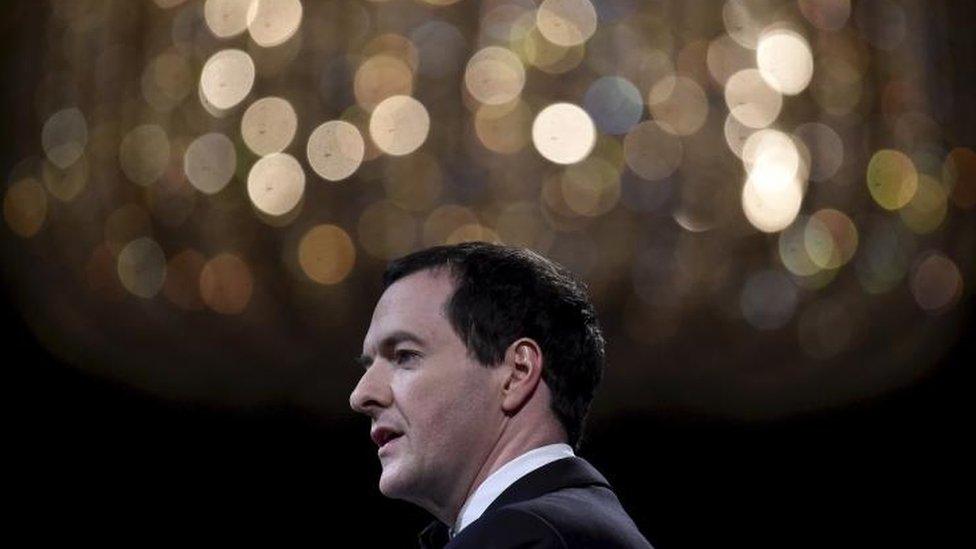Osborne's big idea
- Published
- comments

If George Osborne has a big idea, it is to transfer the costs of and responsibility for building a better, fairer Britain from the public sector to the private sector.
We've seen that with the imposition of a higher minimum wage, rebranded as his National Living Wage, and his stumbling attempt to cut state top-ups to the low paid through the tax-credit system.
We are seeing it today with what one of his colleagues describes as the government "raising the affordable housing budget but also redirecting it to homes for sale rather than rent".
So one of the centrepieces of today's Autumn Statement and Spending Review is what the Treasury describes as the "biggest affordable housebuilding programme since the 1970s".
There will be a substantial £2.3bn of government funding for the construction of so-called starter homes - or homes up to a value of £250,000, or £450,000 in London, which will be sold at a 20% discount to those under 40 buying their first home.
And there will be a big push on semi-privatisation of social housing, with £4bn of finance for shared ownership of residential properties - which will also include a big push on encouraging private developers to promote his Help-to-Buy scheme.
It's bonanza time for mass housebuilders, especially if the chancellor succeeds in loosening planning constraints, as he wants to do.
And it's thin gruel - again - for housing associations, which are being obliged to shrink by selling properties at big discounts to tenants and which are having difficulty building even what they had planned to do following the Treasury's decision to force them to cut rents.
That imposed rental cut was an attempt to shrink the housing benefit bill.
And here perhaps is the best way of seeing Osborne's British vision: slash tax credits by forcing the cost of providing decent wages on businesses; reduce housing benefit, by spurring a boom in cheap housing, cutting rents and stimulating private ownership,
It is a shrinking of the state, that - in theory, and over the medium term - should not impoverish the working poor.
But there may well be pain for what MPs perhaps patronisingly call "strivers" in the period of transition,
And whether in practice too many vulnerable people will fall through shrunken and lowered state safety nets will be one of the big political questions in this parliament - and which may decide whether George Osborne achieves his ambition of relocating to Number 10.